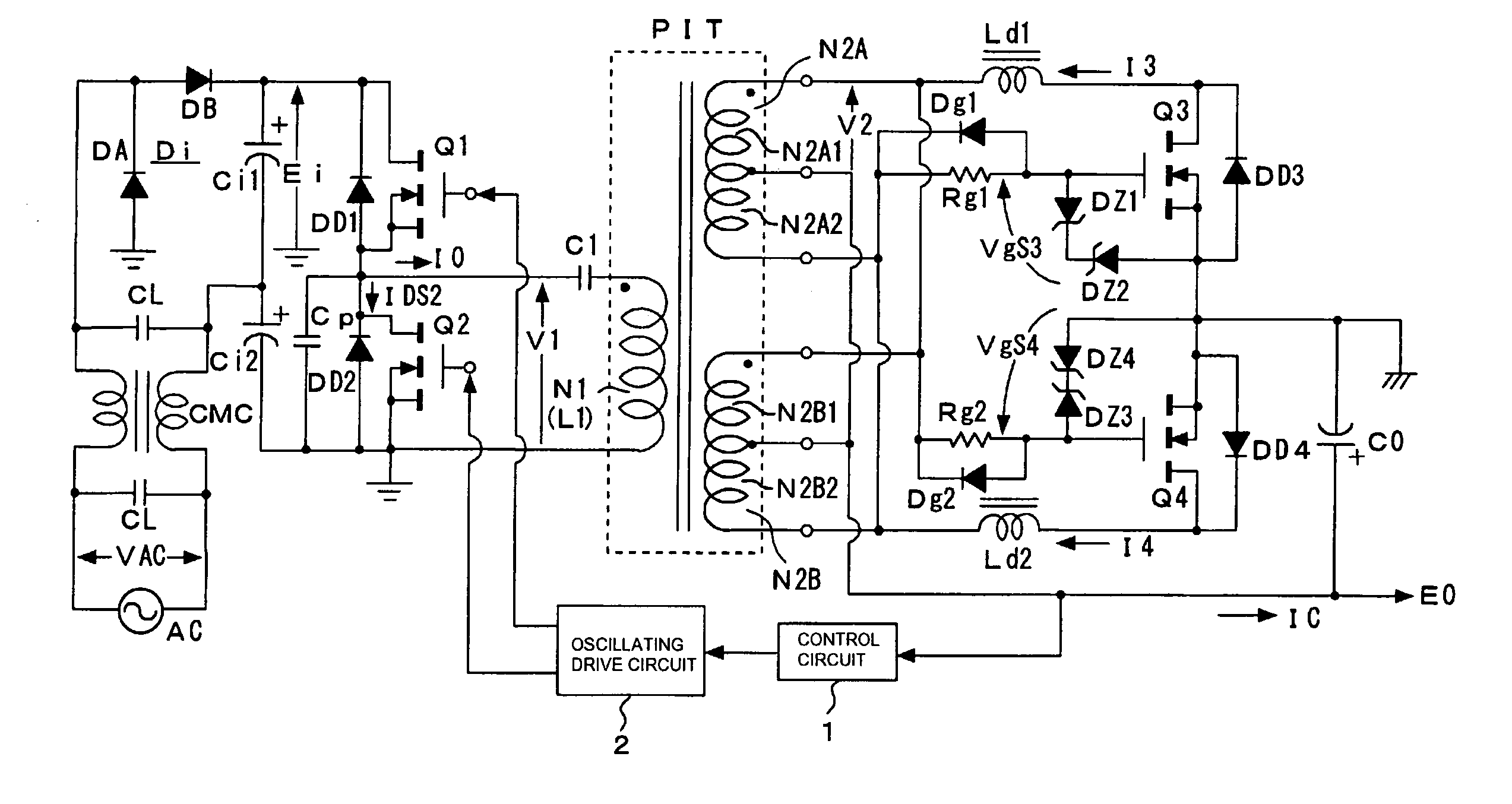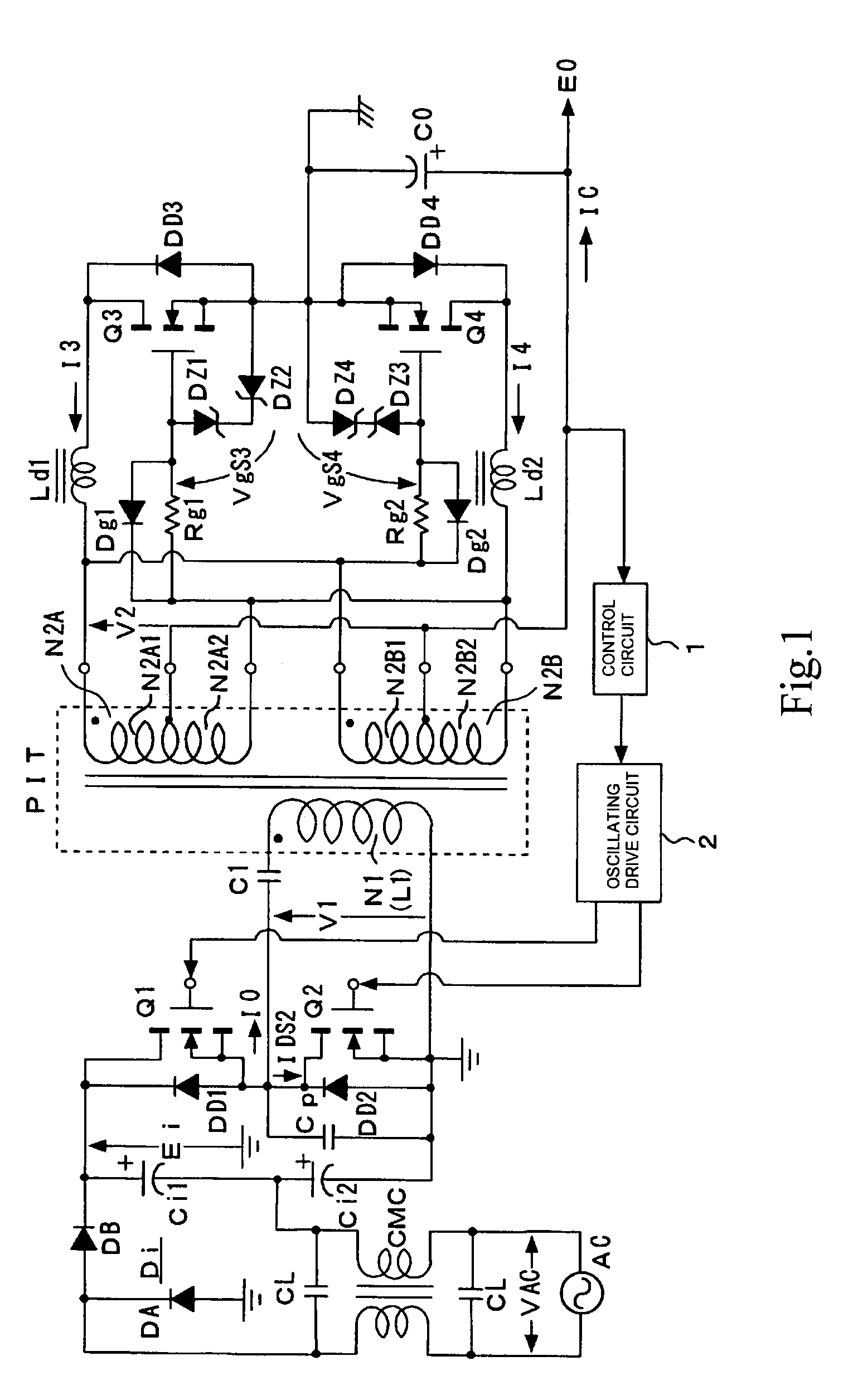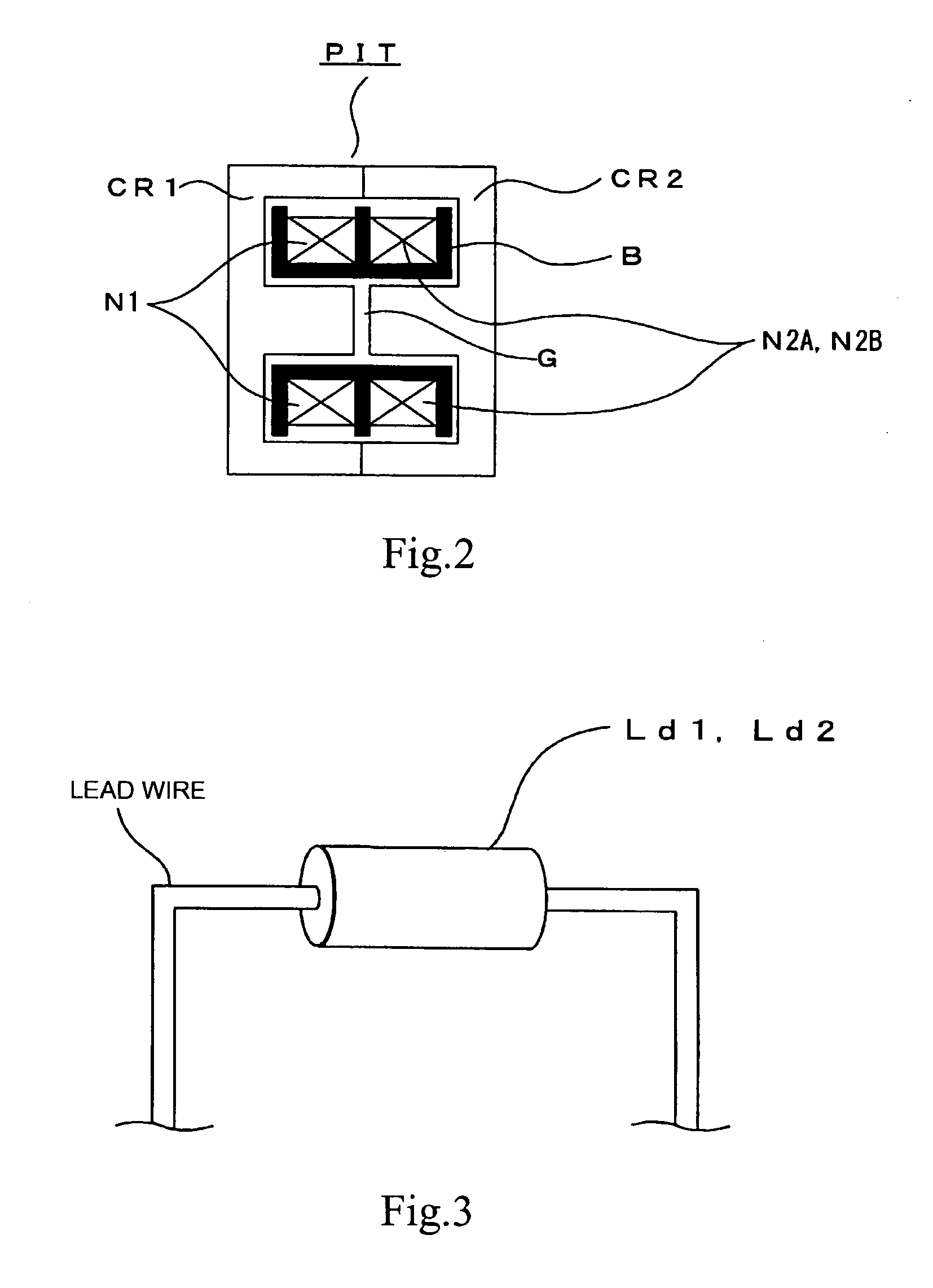Switching power circuit
a power circuit and switching power technology, applied in the direction of process and machine control, electrophonic musical instruments, instruments, etc., can solve the problems of large power loss, limitation in enhancing power conversion efficiency, and limitation in suppressing switching noise, so as to reduce the reactive power, suppress the reverse-direction current, and reduce the reactive power
- Summary
- Abstract
- Description
- Claims
- Application Information
AI Technical Summary
Benefits of technology
Problems solved by technology
Method used
Image
Examples
first embodiment
[0115]FIG. 1 shows a configuration example of a switching power circuit as the present invention. The power circuit shown in this figure adopts, as a basic configuration on the primary side, a configuration in which a partial voltage resonance circuit is combined with a current resonance type converter based on a separately excited type half-bridge coupling system.
[0116]In the power circuit shown in the figure, first, a noise filter composed of filter capacitors CL, CL and a common mode choke coil CMC is formed for a commercial AC power source AC.
[0117]On the latter stage next to the noise filter, a double voltage rectification circuit composed of a rectification circuit unit Di, which consists of rectifying diodes DA, DB, and two smoothing capacitors Ci1, Ci2 is provided, as shown in the figure. The double voltage rectification circuit produces a rectified and smoothed voltage Ei (DC input voltage) at a level corresponding to two times the AC input voltage VAC, as an end-to-end vol...
second embodiment
[0218]FIG. 8 shows a configuration example of a switching power circuit as the present invention. Incidentally, in FIG. 8, the portions which have been described above referring to FIG. 1 are denoted by the same symbols used above, and description thereof will be omitted.
[0219]The power circuit shown in this figure is characterized in that, in the power circuit in the first embodiment shown in FIG. 1 above, the center tap outputs of the secondary windings N2A, N2B are connected to the positive terminal of the smoothing capacitor C0 through an inductor L0, as shown in the figure.
[0220]Besides, in the circuit of FIG. 8, the inductor L0 is inserted in common for the rectified current paths as above-mentioned; in this case, the inductor L0 is similarly set to have a low inductance of about 0.3 μH.
[0221]Therefore, the inductor L0 may also be configured as shown in FIGS. 4A and 4B above, to thereby obtain such a low inductance.
[0222]Operation waveforms of the power circuit shown in FIG. 8...
third embodiment
[0263]In the next place, the configuration of a switching power circuit as the present invention is shown in FIG. 10.
[0264]Incidentally, in FIG. 10, the portions which have been described referring to FIG. 1 above are denoted by the same symbols as used above, and description thereof will be omitted.
[0265]The switching power circuit according to the third embodiment is obtained by removing the inductors Ld1, Ld2 from the configuration of the power circuit according to the second embodiment shown in FIG. 8.
[0266]Only the inductor L0 is provided as the inductor inserted in the secondary-side rectified current path and, in addition, the inductance of the inductor L0 is set at 0.6 μH, which is higher than that in the case of FIG. 8.
[0267]FIG. 11 shows operation waveforms of individual components in the power circuit of the third embodiment.
[0268]With the inductor L0 having an inductance set to be higher than that in the case of FIG. 8, the secondary-side DC output voltage E0 in this cas...
PUM
| Property | Measurement | Unit |
|---|---|---|
| DC voltage | aaaaa | aaaaa |
| forward voltage drop | aaaaa | aaaaa |
| inductance | aaaaa | aaaaa |
Abstract
Description
Claims
Application Information
 Login to View More
Login to View More - R&D
- Intellectual Property
- Life Sciences
- Materials
- Tech Scout
- Unparalleled Data Quality
- Higher Quality Content
- 60% Fewer Hallucinations
Browse by: Latest US Patents, China's latest patents, Technical Efficacy Thesaurus, Application Domain, Technology Topic, Popular Technical Reports.
© 2025 PatSnap. All rights reserved.Legal|Privacy policy|Modern Slavery Act Transparency Statement|Sitemap|About US| Contact US: help@patsnap.com



